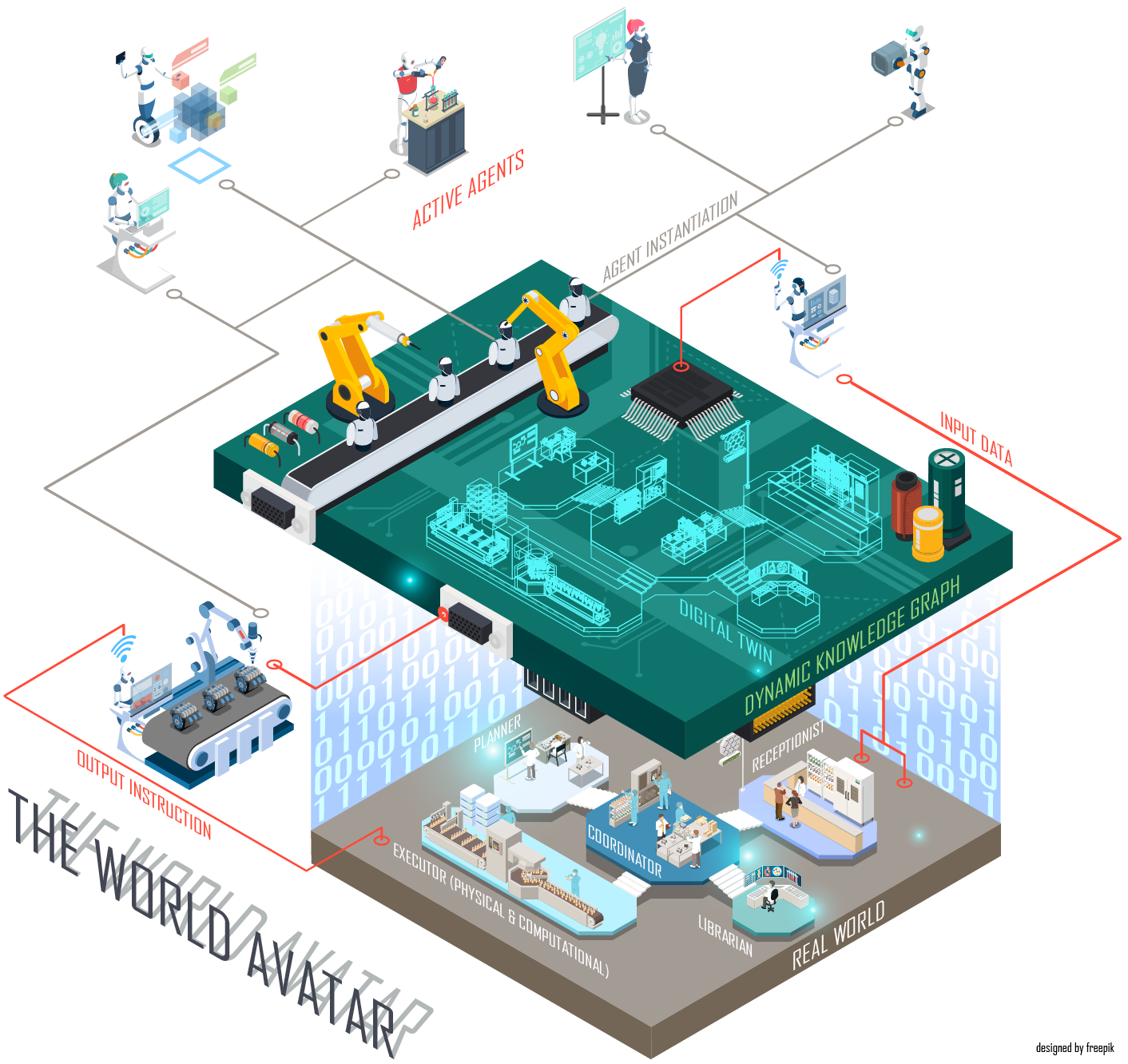Technical Report 284, c4e-Preprint Series, Cambridge
From Platform to Knowledge Graph: Evolution of Laboratory Automation
Reference: Technical Report 284, c4e-Preprint Series, Cambridge, 2021
- Reviewed data flow within state-of-the-art chemical automation studies.
- Summarised current data representation and exchange protocols.
- Proposed a dynamic knowledge-graph-based approach towards automated closedloop optimisation.
 High-fidelity computer-aided experimentation is becoming more accessible with the development of computing power and artificial intelligence tools. The advancement of experimental hardware also empowers researchers to reach a level of accuracy that was not possible in the past. Marching towards the next generation of self-driving laboratories, the orchestration of both resources lies at the focal point of autonomous discovery in chemical science. To achieve such a goal, algorithmically-accessible data representations and standardised communication protocols are indispensable. In this perspective, we recategorise the recently introduced approach based on Materials Acceleration Platforms into five functional components and discuss recent case studies that focus on the data representation and exchange scheme between different components. Emerging technologies for interoperable data representation and multi-agent systems are also discussed with their recent applications in chemical automation. We hypothesise that knowledge graph technology, orchestrating semantic web technologies and multi-agent systems will be the driving force to bring data to knowledge, evolving our way of automating laboratory.
High-fidelity computer-aided experimentation is becoming more accessible with the development of computing power and artificial intelligence tools. The advancement of experimental hardware also empowers researchers to reach a level of accuracy that was not possible in the past. Marching towards the next generation of self-driving laboratories, the orchestration of both resources lies at the focal point of autonomous discovery in chemical science. To achieve such a goal, algorithmically-accessible data representations and standardised communication protocols are indispensable. In this perspective, we recategorise the recently introduced approach based on Materials Acceleration Platforms into five functional components and discuss recent case studies that focus on the data representation and exchange scheme between different components. Emerging technologies for interoperable data representation and multi-agent systems are also discussed with their recent applications in chemical automation. We hypothesise that knowledge graph technology, orchestrating semantic web technologies and multi-agent systems will be the driving force to bring data to knowledge, evolving our way of automating laboratory.
Material from this preprint has been published in JACS Au.
PDF (4.8 MB)



